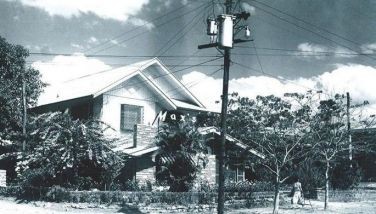Forbidden act

While the general rule is that the insurance proceeds shall be applied exclusively to the proper interest of the person for whose benefit it is made (Section 53, Insurance Code), such person must not however be disqualified by law to receive the proceeds. This is the rule applied in this case.
This case involved Benny who was legally married to Patty with whom he had six children. Later on however, Benny met Emmy and fell in love with her. Eventually, Benny started living with Emmy although he was still legally married to Patty and had not legally separated from her.
As a result of the illicit relation with Emmy they begot two children.
While living in with Emmy, Benny obtained a life insurance policy from a leading insurance company for the sum of P500,000 with a rider for accidental death benefit. He designated Emmy as beneficiary although he reserved the right to revoke the designation.
Barely more than a year after obtaining the policy, Benny met an accident and died when he was hit by a falling branch of a tree. As the insurance policy was in force, the insurance company stands liable to pay the coverage in the total amount of P1 million representing the face value of the policy plus the additional benefits for accidental death.
Soon after he was buried, Emmy filed a claim with the insurance company for the proceeds of the policy as the designated beneficiary therein since Benny had not or was not able to exercise his option to revoke it. But this was contested by Patty who also filed a claim as the legitimate wife. In view of these conflicting claims, the insurance company brought the matter to court inter pleading both Patty and Emmy in the case.
Based on the above facts stipulated by the parties, the trial court rendered judgment declaring, among others, Emmy disqualified from becoming beneficiary of Benny. The court said that under Article 739 of the Civil Code, Emmy is forbidden to receive any donation from Benny since she is guilty of adultery. So Emmy cannot also be named beneficiary of the policy pursuant to Article 2012 which says that any person who cannot receive a donation cannot be named beneficiary in the insurance policy. The court said that a criminal conviction for adultery is not essential to establish her disqualification. Was the court correct?
Yes. In essence, a life insurance policy is no different from a civil donation insofar as the beneficiary is concerned. Both are founded upon the same consideration: liberality. A beneficiary is like a donee, because from the premium of the policy which the insured pays out of liberality, the beneficiary will receive the proceeds or profits of said insurance. As a consequence, Article 739 of the Civil Code barring common law spouses from receiving donations from each other should equally operate in life insurance contracts. And the mandate of Article 2012 cannot be laid aside: any person who cannot receive a donation cannot be named as beneficiary in the life insurance policy of the person who cannot make a donation.
Policy considerations and dictates of morality rightly justify the institution of a barrier between common law spouses in regard to property relations since such relationship ultimately encroaches upon the nuptial and filial rights of the legitimate family.
A conviction for adultery or concubinage is not necessary. Article 739 itself provides that the guilt of the donee may be proved by preponderance of evidence in the same action. In this case, the common law relationship is already admitted by Emmy herself in the stipulation of facts they submitted to the court. This is the same ruling in the case of the Insular life Ass. Co,.Ltd. vs Ebrado, L-44058, October 28, 1977, 80 SCRA, 181).
* * *
Books containing compilation of my articles on Labor Law and Criminal Law, Vols. I and II are now available at 403 Sunrise Condo, 226 Ortigas Ave. Greenhills SJ, tel. 7249445. Email address: attyjosesison@gmail.com
- Latest
- Trending























